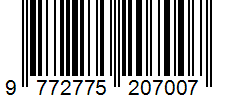Analisis Term and Condition dalam Akses Digital Platform Ditinjau dari Hukum Positif
DOI:
https://doi.org/10.26905/blj.v5i1.11264Keywords:
Terms and Conditions, Digital Platforms, Positive LawAbstract
Digital platforms make it easy for people to do activities. But behind the convenience provided there are several problems that can endanger users. There is a need for regulations that specifically regulate the Protection of User Personal Data. Therefore, Law No. 27 of 2022 concerning Personal Data Protection was born. The research method used in this research is the Normative Juridical method. Based on the results of the research, the Personal Data Protection Law is sufficient to provide protection to users, especially due to data leaks that should be protected in accordance with the terms and conditions agreed and will be protected by the platforms. But it needs the help of other laws in protecting it, such as the 1945 Constitution which is the initial guideline, the ITE Law which regulates business actors, namely digital platforms that provide facilities for users to provide good and correct information as well as for users not to misuse these platforms, Permenkominfo which plays a role in supervising each platform to comply with predetermined provisions, the Civil Code as sanctioning articles, and the Consumer Protection Law which functions as the front guard to protect users, because there are threats to personal data security.
Downloads
References
Afandi, D. R., & Maha, M. P. (2020). Pengembangan Kinerja UKM: Penggunaan Platform Digital dengan Kemampuan Jaringan dan Ambidexterity. Jurnal Pengembangan Wiraswasta, 22(02), 93. https://doi.org/10.33370/jpw.v22i02.432
Aulia, C. (2016). Perlindungan Hukum Bagi Konsumen Dalam Transaksi Jual Beli- Online. Bussiness Law Review, 1(1), 14–20.
Barkatullah, A. H. (2006). Perlindungan Hukum bagi Konsumen dalam Transaksi E-commerce Lintas Negara di Indonesia. Universitas Islam Indonesia.
Dewi Rosadi, S., & Gumelar Pratama, G. (2018). Urgensi Perlindungandata Privasidalam Era Ekonomi Digital Di Indonesia. Veritas et Justitia, 4(1), 88–110. https://doi.org/10.25123/vej.2916
Etriany, V. (2022). Platform Digital. UKMIndonesia.Id. https://ukmindonesia.id/baca-deskripsi-posts/platform-digital-
Fathur, M. (2020). Tanggung Jawab Tokopedia Terhadap Kebocoran Data Pribadi Konsumen. Legal Development Towards A Digital Society Era, 43–60. http://jurnal.unissula.ac.id/index.php/PH/article/view/1476
Finaka, A. W. (2022). Apa Beda PSE Badan Publik dan Privat? . Indonesiabaik.Id.
Josephine, Dewi Rosadi, S., & Sudaryat. (2020). Perlindungan Konsumen Daring Dan Tanggung Jawab Perusahaan Marketplace Atas Data Privasi Konsumen. Suara Keadilan, 21(1), 97–112.
Komala, R. (2022). Literasi Digital Untuk Perlindungan Data Privasi: Dibalik Kemudahan Belanja Daring. Jurnal Ilmu Sosial Dan Pendidikan (JISIP), 6(4), 1998–2002. https://doi.org/10.36312/jisip.v6i4.3527/http
Lesmana, C. T., Elis, E., & Hamimah, S. (2022). Urgensi Undang-Undang Perlindungan Data Pribadi Dalam Menjamin Keamanan Data Pribadi Sebagai Pemenuhan Hak Atas Privasi Masyarakat Indonesia. Jurnal Rechten, 3(2), 1–7.
Lodewyk, A., & Siahaan, S. (2011). Urgensi Perlindungan Data Pribadi Di Platform Marketplace Terhadap Kemajuan Teknologi. Majalah Hukum Nasional, 52(2), 210–222. https://doi.org/10.33331/mhn.v52i2.169
Muhammad, M. O., & Nugroho, L. D. (2021). Perlindungan Hukum Terhadap Pengguna Aplikasi E-Commerce yang Terdampak Kebocoran Data Pribadi. Pamator Journal, 14(2), 165–174. https://doi.org/10.21107/pamator.v14i2.12472
Muiz, A. (2022). Terms and Conditions : Pengertian, Fungsi, Manfaat dan Contoh Cara Membuat. https://adammuiz.com/pengertian-terms-and-conditions/
Mukhidin. (2010). Asas Kebebasan Berkontrak. Jurnal Cermin, 4(7).
Nurul, I. (2021). Kesepakatan dengan Mencentang Kotak “Yes, I Agree†Sah atau tidak? Ini Ketentuannya! Smartlegal.Id .
Qur’ani, H. (2019). Tak Bijak Gunakan Media Sosial dan Aplikasi, Data Pribadi Anda ‘Ditelanjangi.’ HukumOnline.Com.
Rahmansyah, R. (2019). Rancang Bangun Keamanan Sistem Informasi Dengan Authentifikasi Menggunakan Identifikasi One Time Password Berbasis SMS Dengan Hash MD5. Kumpulan Karya Ilmiah Mahasiswa Fakultas Sains Dan Tekhnologi, 1(1), 42. https://journal.pancabudi.ac.id/index.php/fastek/article/download/1385/1253
Revilia, D., & Irwansyah, N. (2020). Social Media Literacy: Millenial’s Perspective of Security and Privacy Awareness. Jurnal Penelitian Komunikasi Dan Opini Publik/Jurnal Penelitian Komunikasi Dan Opini Publik, 24(1). https://doi.org/10.33299/jpkop.24.1.2375
Sarah Hapsari, N., Fatman, Y., & Isbandi. (2020). Implementasi Metode One Time Password pada Sistem Pemesanan Online. Jurnal Media Informatika Budidarma, 4(4), 930–939. https://doi.org/10.30865/mib.v4i4.2195
Soekanto, S. (2013). Penelitian Hukum Normatif. Rajawali Press.
Zebua, D. D. N., & Sunaryanto, L. T. (2021). Platform Digital Sebagai Alternatif Bertahan Di Era Pandemi Covid-19 Bagi Pelaku Bisnis Pertanian. Mimbar Agribisnis/Mimbar Agribisnis : Jurnal Pemikiran Masyarakat Ilmiah Berwawasan Agribisnis, 7(1), 848. https://doi.org/10.25157/ma.v7i1.4834
Downloads
Published
How to Cite
Issue
Section
License
All rights reserved. This is an open-access article distributed under Creative Commons Attribution-ShareAlike 4.0 International








